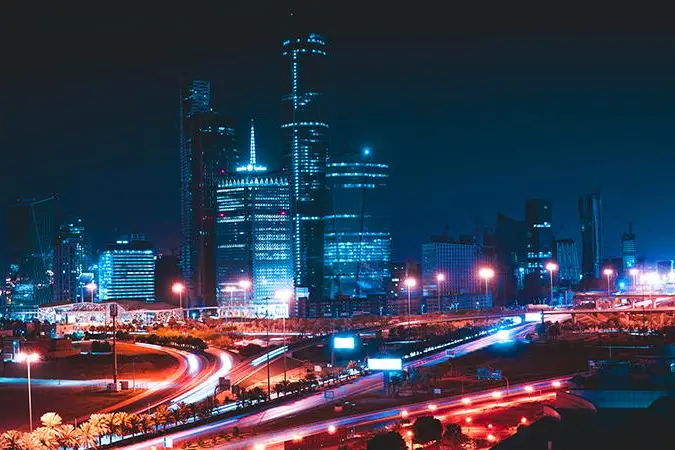PHOTO
Standard Chartered has raised its 2021 growth forecast for Saudi Arabia to 2.8 percent from 1.9 percent given the strong non-oil private investment and expectations of higher oil production as OPEC+ production cuts are tapered.
In its Economic Outlook Q3-2021, the bank forecast a stronger growth recovery for the oil-rich kingdom based on the recovery in the non-oil sector.
“We expect global oil demand to return to pre-COVID levels by the end of 2021, with much of the improvement likely in the near term. Saudi Arabia’s stance to date has been to wait for evidence of increased oil demand before responding with higher oil production,” the bank said in a note Sunday.
Saudi Arabia’s non-oil economy returned to growth in Q1-2021, although overall GDP still contracted 3.0 percent year-on-year (y-o-y) due to oil production cuts. While the oil sector shrank 11.7 percent y-o-y, the non-oil economy grew 2.9 percent, expanding for the first time since Q1-2020.
Private-sector growth rebounded strongly to 4.4 percent y-o-y in Q1, and private-sector credit extension has accelerated (+15 percent y-o-y in April 2021).
PMI readings have stayed above 50 for six consecutive months, rising to 56.4 in May; higher inventories signal that firms are preparing for a demand recovery. Authorities have unveiled an investment programme (‘Shareek’) aimed at increasing the private sector’s contribution to GDP to 65 percent by 2030; this is expected to facilitate approximately 40 billion of private-sector investment annually in 2021-22.
According to Standard Chartered, growth should also be supported by partial border reopening and a rebound in consumer spending. Point-of-sale transactions rose 140 percent y-o-y in April, reflecting the economy’s recovery from COVID.
While overseas haj pilgrims will still be banned this July, 60,000 Saudi pilgrims will be allowed, marking a tentative normalisation.
Inflation to slow
Inflation is likely to slow sharply from July given the high base from the tripling of the VAT rate to 15 percent in July 2020. Inflation rose to 5.7 percent y-o-y in May, still pressured by higher taxes.
“Higher consumer spending and rising domestic demand may continue to exert upward pressure on inflation, but we expect this to be offset by the pronounced base effect. We expect CPI inflation to average 2.9 percent in 2021.”
Tax reforms have had a favourable impact on Saudi Arabia’s fiscal position, with non-oil revenue rising 39 percent y-o-y in Q1 and the deficit narrowing to 7.44 billion riyals ($1.98 billion) from 34 billion riyals a year earlier. A c.50 percent cut in capital expenditure in Q1 also helped. The budget assumes an oil price of $62/bbl and production of 9mb/d in 2021. Authorities have lowered their full-year fiscal deficit forecast to 102 billion riyals (3.3 percent of GDP).
“However, we think the deficit is likely to be smaller (2.1 percent) given higher oil prices,” said the report.
(Writing by Brinda Darasha; editing by Seban Scaria)
This article is provided for informational purposes only. The content does not provide tax, legal or investment advice or opinion regarding the suitability, value or profitability of any particular security, portfolio or investment strategy. Read our full disclaimer policy here.
© ZAWYA 2021




















